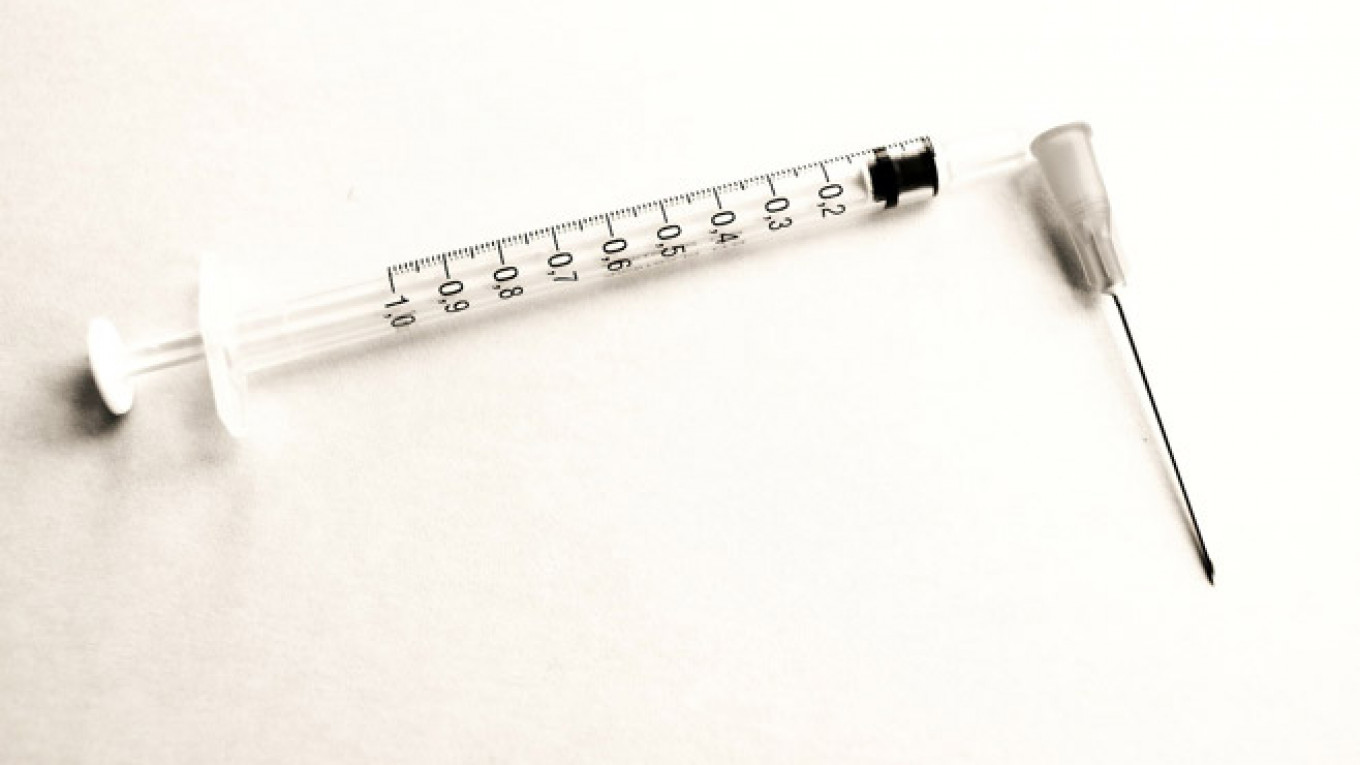Every day more than 200 new cases of HIV are registered in Russia, and by the end of 2015 the number of HIV-positive Russians will exceed 1 million, according to news reports released on Monday, World AIDS Day.
Russia's health and safety watchdog Rospotrebnadzor told Interfax that "860,000 HIV-positive people are currently registered in Russia, and every year this figure increases by 10 percent."
In a speech to the State Duma on Monday, Anna Popova, head of Russia's health and consumer watchdog Rospotrebnadzor, said that 75 percent of males who became infected with the virus this year had become HIV-positive by taking drugs. This leads to severe damage to the country's economy, as these men are usually in their most productive years, she said.
Vadim Pokrovsky, head of the Federal AIDS Center, said that contrary to popular belief in Russia, only 1.1 percent of cases are registered among gay men. The rest are "heterosexuals who lead normal sex lives," he was quoted as saying by Interfax.
Many regions do not have enough money to provide sufficient medication for HIV-positive people, Pokrovsky said.
"The number of HIV-positive people is growing very quickly. In three years it has increased by 200,000, while the amount of money allocated from the budget to deal with the problem has not changed," he was quoted as saying by Interfax.
Russia has come under international criticism for its policy on HIV, such as prohibiting opiate-replacement therapy using drugs such as methadone. The practice has been shown to reduce needle sharing among drug addicts, thus reducing the HIV infection rate. The government has also been reluctant to embrace needle-exchange programs, another weapon proven to be effective in combatting the disease.
Critics also argue that more preventative measures need to be taken, starting with increased sex education in schools.
Contact the author at i.nechepurenko@imedia.ru
A Message from The Moscow Times:
Dear readers,
We are facing unprecedented challenges. Russia's Prosecutor General's Office has designated The Moscow Times as an "undesirable" organization, criminalizing our work and putting our staff at risk of prosecution. This follows our earlier unjust labeling as a "foreign agent."
These actions are direct attempts to silence independent journalism in Russia. The authorities claim our work "discredits the decisions of the Russian leadership." We see things differently: we strive to provide accurate, unbiased reporting on Russia.
We, the journalists of The Moscow Times, refuse to be silenced. But to continue our work, we need your help.
Your support, no matter how small, makes a world of difference. If you can, please support us monthly starting from just $2. It's quick to set up, and every contribution makes a significant impact.
By supporting The Moscow Times, you're defending open, independent journalism in the face of repression. Thank you for standing with us.
Remind me later.






